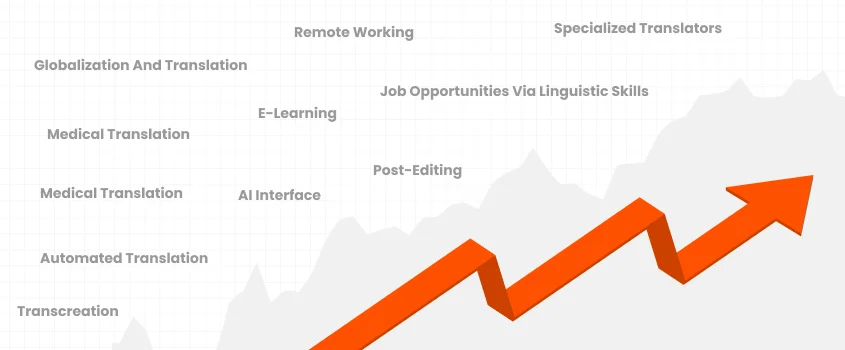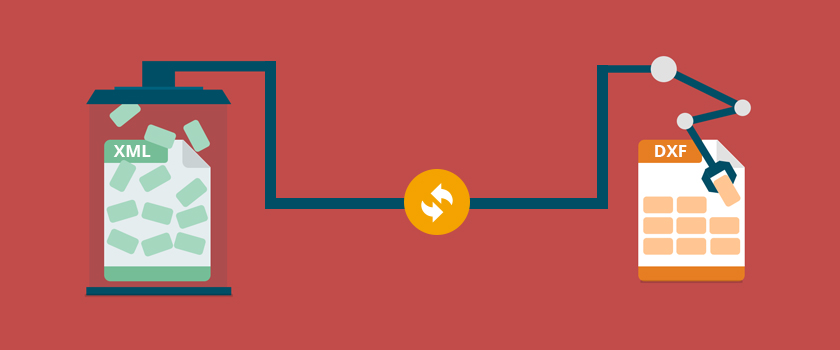Is Your Website Missing Out On UK Customers? 3 Signs You Need Localization
By: Admin Posted on Wed, 06-03-2024

The United Kingdom is one of the strongest countries in Europe. It consists of four historical and geographical parts: Northern Ireland, Scotland, England, and Wales. Most of the UK's population lives in the British Isles, in other words, islands. Hence, it is a very influential country that provides opportunities to not only its citizens but people around the world to excel towards success. If you aim to build a global audience, it is important for you to offer what attracts as well as inspires them. And in a country like the United Kingdom, the best way to offer them information and services is that they can reach out from anywhere.
If you think that your website is not getting the engaging audience that it must get, you need a strong weapon. This strong weapon is localization. In this read, we are going to discuss the reasons why your website is missing out on UK customers. We will also tell you what you need to overcome this problem. So stick with us on this informative journey and get to know more!
Table of Content
What is the Purpose of a Website?
First of all, let's discuss why you even need a website. Of course, websites are sites for information that one can reach from anywhere in the world, thanks to the internet and technology. The engagement that your website receives is directly proportional to the content that you are showing on it.
Aligning the purpose of your websites, in turn, makes a pathway for your business or whatever your goal is. If your website gives information about certain topics, you need to make the content user engaging as well as focus on the readability of your informative content.
Business
You can say that determining the purpose of your website is the first step towards making a business strategy. Once you know the purpose, it becomes easy to know details about the target audience. In that way, you can understand what attracts them so that they can land on your website.
For example, if you are a business, your website shouldn’t only contain information about the products or your brand. But it should also consist of your brand’s vision or even discounts and advertisements that you are offering. It further appeals to the audience and brings their maximum attention to your website.
Entertainment
And if the purpose of your website is purely for entertainment, for example, fan fiction, your tone should be provocative in the sense that it brings their emotions forward. Hence, straightening your goals is directly proportional to creating something that captures the attention of your audience. These websites provide us with real-time updates as well as fresh content.
Websites use sophisticated algorithms based on user preferences. It means websites show content according to your taste. For example, if you search for upcoming movies and TV series, websites that contain information about these movies will automatically arrive on your page.
Additional Tip
One additional thing here is that capturing the attention of your audience for your website shouldn't be your only goal. Your goal should also be to retain that time span. So your strategy must be somewhere between getting the attention as well as keeping hold of that attention. To retain that attention, you can shorten the website’s loading time. It means that your website won't take much time to load and the audience won't feel frustrated. In the long run, the bounce rate will also decrease.
Another factor for keeping the audience’s attention is making your website mobile responsive. There was a time when websites were not mobile friendly. But as today is the era of smartphones, people find it handy to use mobiles for every purpose. And guess what, these mobile-friendly websites are also great from the SEO point of view. Google deliberately put those websites on the first spot that are mobile engaging.
The Acute Need For Localization - What Is Your Website Missing Out?
When there is less user engagement on your website, despite offering your audience the best services, of course, there is something that you lack. Now that lack can be regarding your business or the way your websites work. If the problem is with your products or services, you can include things like call and chat support or even add more products to cater to wider UK audiences. But even if that is not the issue, it can be how you present your business or content.
The most common and easiest way to show what your content is about is its online presence and websites. These websites are handy tools that confirm your digital presence even if you are not physically present in the audience. Now this website needs to be understandable as well as adaptable for multilingual and multicultural audiences. This is where you will need localization.
What is Localization?
Simply speaking, localization is the process of adapting content, either in text or visual form, for the easy understanding of the audiences. Cultural adaptation of the content is a must element of localization. In other words, localization is a much broader and umbrella term for translation. Where translation only means the conversion of content from one language to another, minus the culture part.
What are the Three Signs That You Need Website Localization for the UK Audience?
Of course, in the UK economy, not all the businesses and brands that you see are local ones. A great number of international brands are also present there. Now the question arises, how are these brands able to sustain in an economy that not only consists of multilingualism but is also home to multicultural people? Brands can thrive by conforming their online presence with the help of website localization and translation services. But the thing is not all brands are able to live in this economy. Not every website focuses on these aspects and hence, they miss out on a large scale of audience.
But don't worry because we are here to help you know about these issues as well as provide you with the ultimate result? This result will shape your website’s whole outline and will help you target potential audiences.
Linguistic and Cultural Barriers
According to the 2011 census, more than 19 ethnicities live in the United Kingdom. And today, in 2024, one can only imagine how great that number can be. Hence, these ethnicities bring the concept of multicultural and multilingual people in the spectrum. Launching a website in the UK means that it has to be according to the demand and preferences of the target audience. Complete market knowledge is important for that.
After the market knowledge comes the factor of cultural adaptability. There are certain things that are acceptable in one culture and offensive in the other. For example, in the UK, there are some communities that promote the LGBTQ community while others don't. If your website consists of the same words and format for both of these communities, of course, one of them will stop using your website.
Hence, you need to adapt your websites according to the target audience or else you will have to suffer the blow of a smaller audience. But there are instances when businesses do utilise the region specific approach. For example, Nike’s “Nothing beats a Londoner”, specifically focuses on the London community and even the website caters to Londoners only.
Fewer Engagement Rates
If your website has a high bounce rate, it definitely means that your content doesn't align with the goals of your audience. After English, Scots is the most spoken language in the area. The difference in language brings the difference in culture. For a second, imagine that a Scots speaker uses your website for informative purposes. Now you have translated your website for the Scots community but still, the engagement rate of your website is less.
The reason behind this can be that your website is not culturally or functionally adaptable. As mentioned earlier, even if your website is not mobile-friendly, the bouncing rate will definitely be high as the UK audience focuses on mobile friendly aspects of the websites.
No Global Presence
We all know how lucrative the British economy is. The profitable nature of this economy is the reason behind the influx of businesses here in the last few years. Not only is this market great for the business industry, but also if you are in search of a job or looking for the perfect country to settle down. Despite all the advantages, do you feel that your business is not growing in this economy?
The reason is that you are not using the right tools. One of these tools is localization. It is one of the most convenient features for small businesses as it brings a surge in their reach and revenue generation. If your website only caters to the English-speaking audiences, this is where you are missing out on the greater population of the United Kingdom.
Your business needs to cross boundaries without even crossing boundaries and this is where localization steps up and helps you. Adapting your websites as per the cultural structure of your target audience is how localization helps you not to miss out on UK customers.
Knowing About the UK Consumer Behaviour
In order to bring your website to the focus of the UK audience, it is important to know what they prefer. By knowing about their demands and desires, you can provide them with the content of their choice. In the long run, this will help you to enhance user engagement on your websites.
Exertion on Quality
The British audience is all about the quality of products. If you notice, yes British products are expensive but there is no compromise on quality. The durability and reliability of products are the main things that Britishers focus on. And if you are a manufacturing business, the quality of your products needs to be excellent. Regardless of what you are producing, the quality alone takes your business to the market talks.
It means that people are hearing about your products which will of course pique their interests and they will come to you in the long run. The accurate localization of your business website will resonate with the high quality of your products and further capture the audience's attention.
The Lingering Factor of Trust
These quality products ensure that your UK audience gets the best products which makes them trust your brand. Even if we don't focus on the business aspect, your informational content also requires the audience's trust. That trust comes from clarity as well as facts that website localization thoroughly delivers.
Digital Supremacy
So we all know that it is the era of digital technology. Things that are accessible online reach people more than those that aren't. This scenario is prevalent in the United Kingdom where technology is more in use. In the UK, more than 80% of people use the internet for almost everything. And this percentage of people use smartphones for browsing the internet. So one thing is for sure making your business online in the British industry will take your business to heights. Further, with the localization of this online content, you can easily cover a large audience.
Preference for Native Language Content
More than 65% of UK customers prefer content in their language. Localization not only brings this native language into focus but works on cultural adaptability too. Hiring native translators from top translation companies in the UK integrates localization elements into your website and that is how the target audience connects with your website.
There is another percentage that indicates that the UK audience looks for the cultural adaptability of websites before further engaging with them and that percentage is 40%. It means that even if your website is translated into the user language, there is a high chance that you will still miss out on UK customers.
What you need are the localization elements that work on the language, format, visuals, and overall outlook of your website to make it appealing to the people.
Internet Usage in the United Kingdom
More than 86% of the UK audience uses the internet daily. And it is the same percentage of people that look for products online through websites. Among the 86% of this population, 81% make purchases through websites. This is why it is important even for small businesses to shift to websites if they want to earn profit and enter global markets at the same time.
Social Media and Blogging
With the help of social media, you must reach out to local influencers who have a direct impact on the UK audience. This will help you connect with the people on a more personal level. You can start a blog on your website where you can provide further information about your products and services. It will help you target Gen Z, the most responsive generation. Through blogs, you can showcase the lifestyle aspect of your business in which people are more interested these days.
Final Words!
So now you know why we exert pressure on the localization of your website. An accurately localised website doesn't let you miss out on your potential UK customers. With the effective UK market study, you will come to know about consumer behavior. At Mars Translation, we help you localise your websites so that they are adaptable for your diverse audiences.
Our professional and native translators have years of experience working in the field which is why our solutions help you target the UK audiences. Hence, with website localization, you can remove the cultural and linguistic barriers. This will enhance website engagement as well as reserve a spot for your brand in the global marketplace.

Finland is a beautiful country in Northern Europe. It is famous for its woodlands that make it the most densely
Read more
If you are an avid internet user (which you most probably are, you must be aware of the popular myth
Read more
To get success in every aspect of life, communication is very important. Do you want to impress people with your
Read more
Africa is the second largest and second most populous continent. As recent statistics suggest, 1,486,275,887 is the current population of
Read more
dxf: DXF is a CAD data file format developed by Autodesk for CAD data exchange between AutoCAD and other software. docx:
Read more
Mars Translation can help you extract the texts in a DXF file and convert them into a XML file so
Read more
Mars Translation can help you extract the texts in a DWG file and convert them into a Word file so
Read more
No state on the western side of the globe can compare the strategic geographic location, diverse multilingual workforce, and attention
Read more
San Diego is California's second-largest city, and it has a population of 1.3 million from which three million residents are
Read more